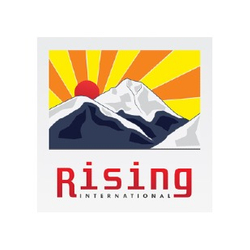
Wholesale Suppliers

Smoking Cessation
Health care
Hookah G





Hookah G is a wholesale and retail business that sells various high-end kratom products, smoking & vaping accessories, digital scales, tobacco ...
Oregon
Manufacturer
200+
2010
Hot Selling


herbs & botanicals
Klarity Kratom






Klarity Kratom is the best brand for providing different types of kratom products. It is a famous brand in Los Ange...
California
Manufacturer
50+
Hot Selling

apparel
American Rogue


Based in the U.S., American Rogue is a men's fast fashion brand.
We don’t just carry ordinary fashion essentials; rather we carry tre...
Wholesaler
20+
Hot Selling

apparel
Rising International


Rising International is a U.S. based company with a mission to bring traditional Asian fashion to the international market.
We are proud to...
California
Manufacturer
1000+
Hot Selling

Gym Equipment
Star Chain Corp


Star Chain Corp is an industry-leading strength & fitness equipment store located in Dallas, Texas.
Since 1983, we’ve been the pr...
Texas
Manufacturer
50
Hot Selling
In the ever-evolving world of commerce, knowing where to invest and how to find the right wholesale suppliers is crucial for the success of your business.
Currently, there are over 686,179 wholesalers in the United States, and this sector is projected to reach $12.3 trillion by 2026, growing at a compound annual growth rate (CAGR) of 3.3%.
Some of the potential drivers behind this market growth are technological advancements, increased reach, relationship building, etc.
As a result, navigating this vast landscape requires not only diligence but also a keen understanding of market dynamics and foresight.
But with so many vendors out there, how do you pick the best one for your business? And what do you need to know before you invest? Let’s find out!
Types of Suppliers in the Supply Chain
First, let's talk about the different types of wholesale suppliers in the supply chain.
Generally, you can buy products in bulk from manufacturers, wholesalers, and distributors—each playing a unique role in the supply chain.
All these participants fall under the umbrella term of 'suppliers' as they provide goods at different stages:
- Manufacturers: They make goods in large quantities and sell them in bulk to wholesalers or retailers.
- Wholesalers: They buy goods in big lots from manufacturers, split them into smaller batches, and sell them to retailers.
- Distributors: They connect manufacturers with wholesalers or retailers, taking care of the transportation and delivery of goods.
Depending on your business model, target market, and product niche, you may choose to work with one or more types of suppliers.
Lucrative Market Categories
Before setting up a business or expanding your product range, it's essential to understand the market demand and profitability of various product categories.
Here are some categories that demonstrate significant growth and high demand:
- Clothing: With an estimated market value of $343.70 billion, clothing continues to be a highly profitable industry. Fashion trends constantly evolve, creating a continuous demand for new clothing and accessories.
- Consumer Electronics: The market value stands at $155 billion. Demand for smartphones, tablets, gaming consoles, and other devices is growing at an unprecedented rate.
- Beauty and Personal Care: The industry is currently worth $92.79 billion and shows no signs of slowing down. Products range from skincare and haircare products to makeup and perfumes.
- Toys and Games: The Toys and Games market is expected to reach $38.51 billion. This category is particularly profitable during the holiday season and appeals to a broad demographic range.
- Sports and Outdoor: This market is valued at $22.88 billion. The increased interest in health and fitness is driving demand for sports equipment and outdoor recreation gear.
These are just some examples to start from; you can choose your niche and find suppliers within it.
Emerging Trends in Wholesale
The wholesale industry is continually evolving. To stay ahead of the competition, it's essential to keep up with the latest trends and innovations.
For businesses, partnering with forward-thinking suppliers is key to staying competitive and relevant.
Conversely, suppliers can tap into these trends to attract modern, progressive clients.
Here are some trends shaping the future of wholesale, and how you can capitalize on them as a buyer or seller:
Digitalization and B2B Marketplaces
Today, B2B marketplaces are rapidly growing and are expected to facilitate 80% of B2B sales by 2025.
These marketplaces offer a vast pool of buyers and sellers, enabling businesses to expand their customer base and boost sales.
Omnichannel Selling
Omnichannel selling aims to deliver a consistent buying experience.
This customer-centric strategy allows businesses to engage customers across various channels, fostering brand loyalty.
Tech Integration in Operations
Technologies such as analytics, AI tools, robotics, cloud computing, and automation are revolutionizing business operations, enhancing efficiency, and driving down costs.
Advanced Supply Chain Management
Wholesalers are now turning to IoT, RFID, robotics, and inventory management tools for rapid deliveries, data precision, and efficient inventory tracking.
Factors to Consider When Choosing Wholesale Suppliers
Supplier's Reputation and Reliability
Research each potential supplier thoroughly. Look for reviews and testimonials from other customers. Check their track record for reliability and consistency in product quality, delivery times, and customer service.
Vendor Certification
It's also essential to consider whether the supplier holds any certifications. Certifications like ISO (International Organization for Standardization) can give you added confidence in a vendor's operational standards and product quality.
Product Assortment
Consider checking the vendor’s catalog; with diversified product assortments, you can easily access necessary products regularly.
However, you can also choose niche-specific suppliers for a more targeted and specialized approach to your business needs.
Prices
When picking a vendor, think of it like buying a car. You don’t just look at the price tag. You look at the gas mileage, the warranty, after-sales service, and more.
In the same way, don’t focus on the product’s base cost only. Look at the whole deal – delivery times, after-sales support, and quality.
Compatibility
Ensure the supplier aligns with your business values and goals. A supplier willing to collaborate with you on product customization and scalability can add significant value to your business.
Negotiating with Suppliers
Once you’ve identified potential suppliers, the next step is to negotiate terms. When negotiating with suppliers, be prepared to discuss order quantities, prices, payment terms, and delivery schedules.
It’s also important to establish what happens in the case of defective or returned goods.
Don’t be afraid to negotiate terms that will benefit your business, but remember that the best relationships are those that work for both parties.
Some tips for effective negotiation are:
- Do your research: Know your market value, your budget, and your options before approaching a supplier.
- Be respectful: Treat the supplier as a partner, not an adversary. Listen to their concerns and offer solutions that meet their needs as well as yours.
- Be flexible: Be willing to compromise on some aspects of the deal if it means getting a better outcome overall.
- Be clear: Communicate your expectations and requirements clearly and avoid ambiguity or confusion.
- Be honest: Don’t make false promises or unrealistic demands. Be truthful about your capabilities and limitations.
Finding Reliable Vendors and Suppliers
There are several options for finding wholesale vendors, but online B2B marketplaces and directories are often the most suitable.
B2B marketplaces feature a wide range of suppliers. You can compare product offerings, prices, and reviews to find the right match.
Also, wholesale directories list thousands of suppliers, helping businesses compare and identify suitable partners.
Armed with this knowledge, you are now well-equipped to choose the right suppliers for your wholesale business.
Copyright 2025 Seebiz Inc. All rights reserved














